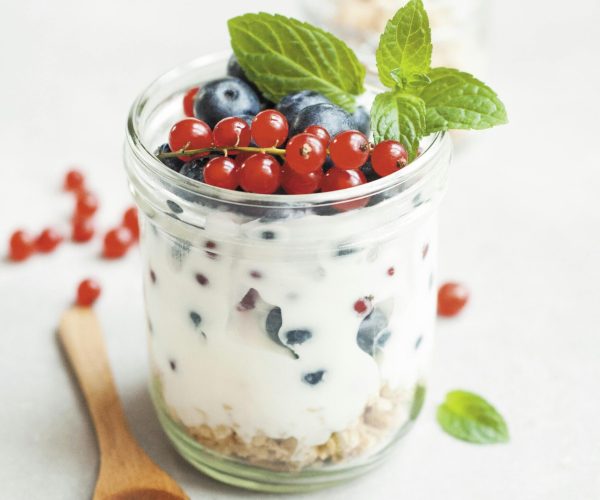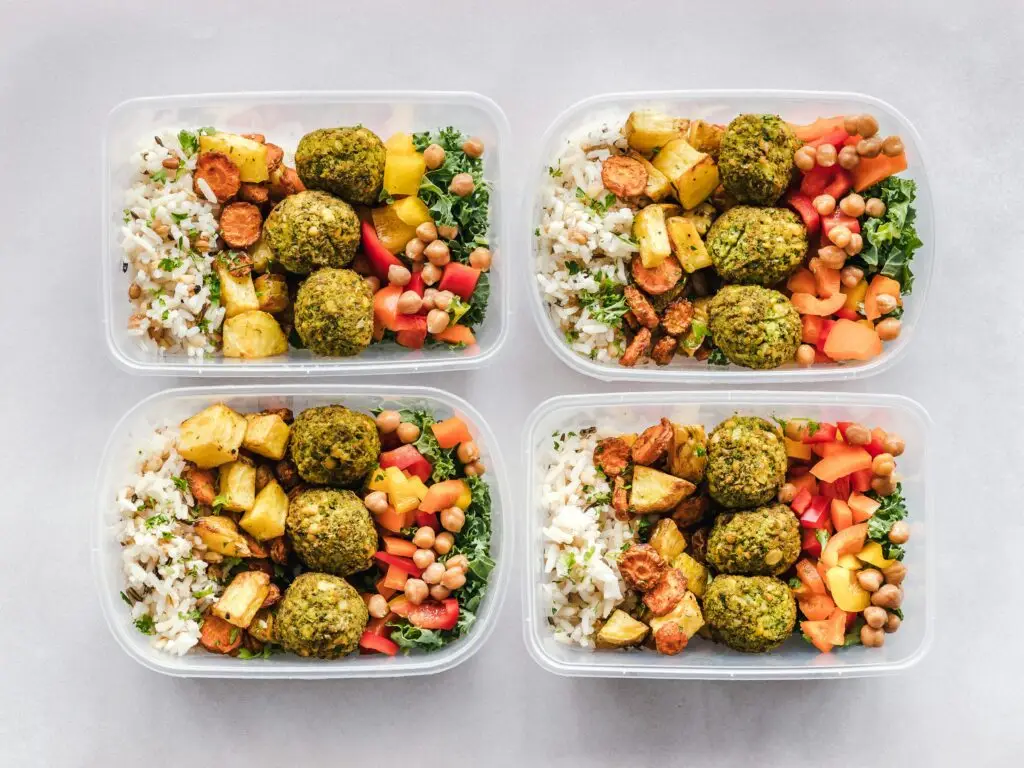In recent years, plant-based eating has moved from niche to mainstream, as more people discover the benefits of incorporating plant-based alternatives into their diets. Among the most popular dairy substitutes is vegan yogurt. Whether you’re vegan, lactose-intolerant, or simply looking for a healthier alternative to traditional dairy products, vegan yogurt offers a creamy, nutritious, and delicious option for a wide range of uses.
From breakfast bowls to smoothies, sauces to desserts, vegan yogurt has become an essential ingredient in many kitchens. But what exactly is vegan yogurt, how is it made, and why is it becoming such a popular choice? In this article, we’ll explore why vegan yogurt is gaining so much attention, the variety of plant-based ingredients used to make it, and provide a simple recipe for making your own vegan yogurt at home.
Why Vegan Yogurt is Gaining Popularity
1. Lactose-Free and Digestive-Friendly
One of the primary reasons for the growing popularity of vegan yogurt is its lactose-free nature. For people who are lactose intolerant or have dairy sensitivities, consuming dairy yogurt can lead to discomfort, bloating, and digestive issues. Vegan yogurt, made from plant-based milks such as almond, coconut, soy, and oat, offers a digestive-friendly alternative that’s free from lactose while still providing the same creamy texture and versatility.
Additionally, many plant-based yogurts contain probiotics, beneficial bacteria that support gut health and digestion. These probiotics help maintain a healthy balance of gut flora and can aid in digestion, making vegan yogurt an excellent option for those seeking to improve their digestive health.
2. Ethical and Sustainable Choice
Vegan yogurt provides a more ethical choice for those concerned about the environmental and animal welfare implications of dairy farming. The dairy industry is associated with significant environmental challenges, including high greenhouse gas emissions, deforestation for feed production, and large water consumption. Moreover, animal welfare concerns related to dairy farming practices, such as the separation of calves from their mothers and the treatment of dairy cows, have led many people to choose plant-based alternatives.
By opting for vegan yogurt, consumers can reduce their environmental impact and avoid contributing to animal exploitation. Plant-based yogurt is often produced with fewer resources, uses renewable crops, and has a much lower carbon footprint compared to dairy yogurt.
3. Health Benefits
Vegan yogurt is often lower in saturated fat and cholesterol compared to its dairy counterparts, making it heart-healthier. In addition, many vegan yogurt products are fortified with vitamins and minerals that are important for those on plant-based diets, including calcium, vitamin D, and B12. Nutrients like these are essential for bone health, immune function, and overall well-being, especially for those who do not consume dairy.
Moreover, vegan yogurts made from whole food ingredients, like nuts or seeds, are rich in healthy fats, fiber, and protein. These nutrients support cardiovascular health, promote satiety, and contribute to overall wellness.
4. Flavor Variety and Customization
One of the most exciting aspects of vegan yogurt is the variety of flavors and textures it can take on. With options made from almond milk, coconut milk, soy milk, oat milk, and even cashew milk, vegan yogurt can be tailored to suit a range of preferences. Some plant-based yogurts have a rich and creamy consistency, while others are lighter, depending on the base ingredient.
Moreover, vegan yogurt can be easily flavored with natural sweeteners, fruits, spices, and other flavorings. From tangy and tart to smooth and sweet, the possibilities for customizing vegan yogurt are endless. Many brands offer a range of flavored options, including vanilla, strawberry, coconut, blueberry, and even savory varieties for sauces or dips.
5. Versatility
Vegan yogurt’s versatility extends beyond just being eaten as a snack or breakfast food. It can be used in smoothies, as a base for creamy sauces and dressings, in baked goods, and even as a substitute for sour cream in many recipes. Its smooth, velvety texture makes it ideal for use in both savory and sweet dishes.
Vegan yogurt is also a great dairy replacement in traditional yogurt-based dishes like parfaits, chia pudding, or tzatziki. It can be enjoyed as a topping for granola, fruit, and oats or incorporated into savory dishes like vegan curry, salad dressings, or dips.
Key Ingredients Used in Vegan Yogurt
The ingredients in vegan yogurt vary depending on the base used, but the core components are typically plant-based milks, thickening agents, sweeteners, and probiotics. Let’s take a closer look at the most common ingredients used in making vegan yogurt:

- Plant-Based Milk Vegan yogurt is made from a variety of plant-based milks, each contributing its own unique flavor and texture. Common options include:
- Soy Milk: One of the most popular bases for vegan yogurt, soy milk is rich in protein and has a creamy consistency. It’s also a great source of calcium and other essential nutrients.
- Almond Milk: Almond milk is lighter than soy milk but still offers a smooth texture. It’s often enriched with additional vitamins and minerals like calcium and vitamin D.
- Coconut Milk: Known for its rich and creamy texture, coconut milk adds a tropical flavor to vegan yogurt. It’s high in healthy fats but lower in protein compared to soy milk.
- Oat Milk: Oat milk has gained popularity in recent years for its naturally creamy consistency and mild flavor. It’s a great dairy-free option for yogurt-making and often contains added fiber.
- Cashew Milk: Cashew milk is rich and smooth, with a mild flavor. It’s often used for creamy, thick vegan yogurts.
- Thickeners and Stabilizers To achieve the thick, creamy texture that yogurt is known for, vegan yogurt often contains natural thickeners such as:
- Agar-Agar: A plant-based gelatin derived from seaweed, agar-agar helps to firm up the yogurt.
- Carrageenan: A seaweed-derived thickener used to give yogurt a smooth texture.
- Guar Gum or Xanthan Gum: These natural gums are commonly used in dairy-free yogurt to help thicken and stabilize the product.
- Pectin: A plant-based carbohydrate found in fruits, pectin is used in some vegan yogurts as a gelling agent.
- Probiotics Probiotics are essential in making vegan yogurt. These beneficial bacteria contribute to the fermentation process, turning the plant-based milk into yogurt and providing digestive health benefits. Common probiotic strains found in vegan yogurts include Lactobacillus acidophilus and Bifidobacterium. These probiotics help promote a healthy gut microbiome and improve digestion.
- Sweeteners and Flavorings Many vegan yogurts are sweetened with natural, plant-based sweeteners like agave nectar, maple syrup, coconut sugar, or fruit purees. They can also be flavored with vanilla, berries, or even spices like cinnamon and cardamom.
How to Make Your Own Vegan Yogurt
Making your own vegan yogurt at home is easier than you might think! With just a few simple ingredients and some patience, you can create a creamy, delicious yogurt that’s perfect for breakfast or snacking. Here’s a basic recipe for homemade soy milk-based vegan yogurt.
Ingredients:
- 4 cups unsweetened soy milk (or any other plant-based milk of your choice)
- 1/4 cup sweetener (such as maple syrup, agave nectar, or coconut sugar)
- 1 tablespoon agar-agar powder (for thickening)
- 1/4 cup probiotic yogurt starter or 2-3 capsules of a dairy-free probiotic (available at health food stores)
- 1 teaspoon vanilla extract (optional, for flavor)
Instructions:
- Heat the Soy Milk: Pour the soy milk into a saucepan and heat it over medium heat until it reaches about 180°F (82°C). Stir occasionally to ensure the milk doesn’t burn. Heating the milk helps to break down the proteins, which will help the yogurt set properly.
- Add Sweetener and Agar-Agar: Once the soy milk is heated, add your sweetener of choice and the agar-agar powder. Stir to combine, and let the mixture simmer for about 5 minutes, ensuring the agar-agar dissolves completely. This will help thicken the yogurt.
- Cool the Mixture: Remove the saucepan from the heat and allow the soy milk mixture to cool to about 110°F (43°C). This is the ideal temperature for adding the probiotic cultures without killing the beneficial bacteria.
- Add the Probiotics: If you’re using a store-bought probiotic starter, follow the instructions on the package. If you’re using probiotic capsules, open the capsules and pour the powder into the cooled soy milk mixture. Stir gently to combine.
- Ferment the Yogurt: Pour the mixture into a clean glass jar or container and cover it with a lid or cloth. Place the container in a warm area, such as an oven with the light on, or a yogurt maker, for 12-24 hours. The longer you let it ferment, the tangier your yogurt will be.
- Refrigerate the Yogurt: After fermentation, check the yogurt for its consistency and flavor. Once it’s ready, place it in the fridge to chill for at least 4 hours. It will thicken up further as it cools.
- Serve and Enjoy: Once chilled, your homemade vegan yogurt is ready to enjoy! Top it with fresh fruit, granola, nuts, or a drizzle of honey for a delicious and nutritious treat.
Vegan yogurt is more than just a dairy-free substitute; it’s a versatile, healthy, and sustainable food that offers a wealth of benefits for both your body and the planet. Whether you enjoy it as part of a smoothie bowl, in baked goods, or simply on its own, vegan yogurt is a delicious addition to any plant-based diet. By making your own vegan yogurt at home, you can control the ingredients, flavor, and texture to suit your preferences. So, go ahead and try making your own plant-based yogurt—it’s a creamy, wholesome treat that everyone can enjoy!



